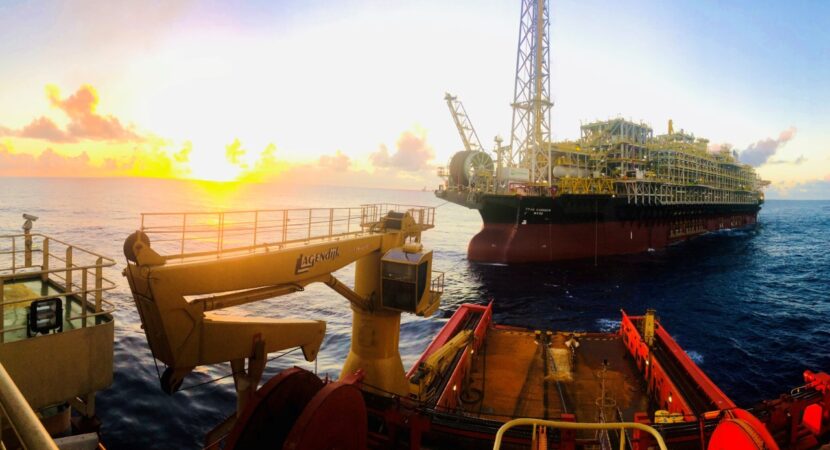
Equipment could open a new frontier for exploration and development of oil production in deep and ultra-deep waters, in regions where there are reservoir fluids with a high gas-oil ratio and CO2 content
Petrobras, the Brazilian oil giant and operator of the Libra consortium, informed the market in a material fact that it has begun contracting suppliers for the execution of the project, construction, installation and carrying out of HISEP® tests, a technology patented by the company that aims to separate and reinjecting, still at the bottom of the sea, the gas with a high CO2 content that is produced along with the oil.
Read also
- Urca Comercializadora acquires 2,3 million tons of carbon from a hydroelectric plant controlled by Neoenergia in favor of UTE Prosperidade III and the unit becomes the first carbon neutral thermoelectric plant in Brazil!
- Looking for a job but no experience? Sotreq, the official dealer of Caterpillar machines and systems, invites recent graduates to join its 2022 Trainee Program
- Tensions in the United Arab Emirates make the price of Brent oil skyrocket and reach the highest level since 2014; fears of shortages in the global market may change the ethanol mix of plants in Brazil
- Despite US sanctions, Iran has been shipping gasoline and oil products to Venezuela; during the governments of Hugo Chávez and Mahmoud Ahmadinejad, the countries became strategic allies and more oil began to 'emerge' from the bowels of the Venezuelan subsoil
According to Petrobras, the contracting started after the conclusion of conceptual evaluations and pilot tests on land, when the state-owned company and the supplier companies worked in partnership in the execution of conceptual studies and in the validation of the performance of the subsea pumps that will reinject the CO2-rich gas in the reservoir. The expectation is that the manufacturer will be selected by August/2022 and that the equipment will be installed in 2025.
HISEP® promises to increase oil production by freeing up space in the surface gas processing plant.
According to the state-owned company, the new technology could open a new frontier for exploration and development of oil production in deep and ultra-deep waters, in regions where there are reservoir fluids with a high gas-oil ratio and CO2 content. HISEP® will provide increased oil production by freeing up space in the surface gas processing plant.
The pilot test is expected to be carried out in the Mero 3 area, which should start production in 2024. After two years of tests, with the technology proven, the HISEP® can be used in other areas, such as Libra Central and Jupiter , where innovation has the potential to make the production development project viable.
Once the HISEP® technology is proven, it will also be possible to develop production units offshore with smaller and less complex gas processing plants, which have lower costs and construction times, as well as lower operating costs.
Libra Consortium is operated by Petrobras in partnership with the oil companies Shell, Total, CNPC and CNOOC
Petrobras has been working in partnership with companies in the market in the way understood by the concept of early engagement, that is, with the involvement of suppliers in the development of technology from the initial stages of the process, to the definition and development of the solution to be adopted in the final product. The objective is to make the technology not only technically viable, but also replicable and commercially interesting for the market.
Since 2017, companies have been consulted to identify the equipment that had already been developed by them and that could be adapted for the project, and also the main existing technological bottlenecks for the project to become a reality. Over the years, conceptual studies and performance tests have been successfully developed in partnership, such as checking the performance of underwater centrifugal pumps for the injection of dense gas, rich in CO2.
The Libra Consortium is operated by Petrobras (40%), in partnership with Shell (20%), Total (20%), CNPC (10%) and CNOOC Limited (10%), with Pré-Sal Petróleo SA (PPSA) as manager.

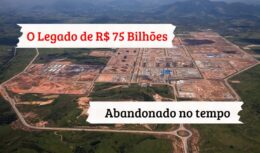
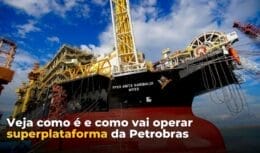
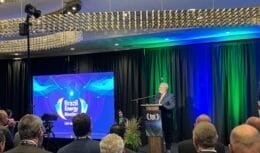





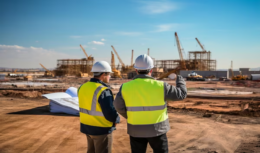



And the battlefield, all that matters is victory...
"Friendly nation" I don't believe you can…
The potential of this research and…
There is already a language translation app…
Developed countries now need a helping hand…
I've never seen a website publish so much zucchini...
It must be sold to the Australians, nation…
Much better than playing a lot…